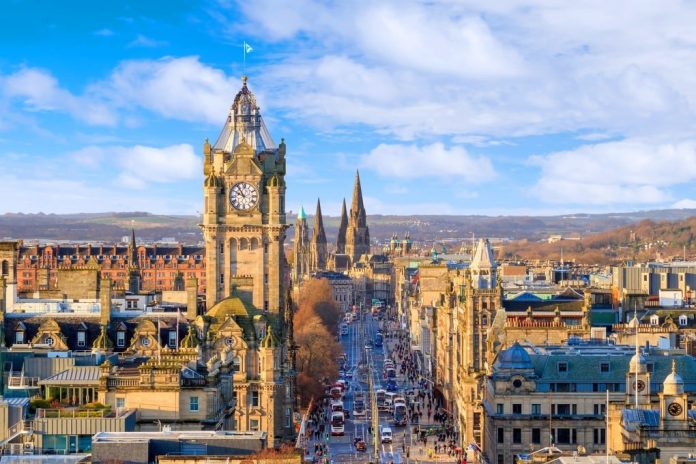Edinburgh will introduce a 5% tourist tax on overnight stays from mid-2026, making it the first UK city to implement such a levy. As CNN Travel reports, the charge will apply to hotels, B&Bs, hostels, self-catering apartments, and guest houses, with a cap of five consecutive nights. Accommodation providers will collect the fee on behalf of the city.
“Tourism puts strain on the city’s resources,” said Jane Meagher, head of the City of Edinburgh Council, ahead of the vote, according to CNN Travel. She emphasized the need for sustainable investment to support local infrastructure and services. Edinburgh received nearly 5 million overnight visitors in 2023, who spent £2.2 billion ($2.7 billion), according to Visit Scotland. The council estimates that by 2028-2029, the tax will generate £45-50 million ($56-62 million) annually.
A tourist levy in Edinburgh has been discussed since 2018, but it only became viable after the Visitor Levy (Scotland) Act took effect in July 2024. Under the new law, revenue must be directed toward facilities and services heavily used by tourists. Some councillors advocated for a higher tax rate, arguing that the funds should also be used to address affordable housing concerns, particularly for hospitality workers.
Public consultations revealed mixed reactions to the tax. CNN Travel notes that over half of residents and businesses supported the 5% charge, but 62% of tourists opposed it or wanted a lower fee. Initially, the tax was set to apply for seven nights, but it was reduced to five following concerns from Visit Scotland and Edinburgh Festivals, which pointed out that festival workers often stay for extended periods.
Edinburgh now joins a growing list of European cities with tourist taxes. Amsterdam has the highest rate at 12.5%, while Venice recently trialed an entrance fee for day-trippers, raising millions of euros, according to CNN Travel. The Welsh government is also considering similar legislation this year.
















